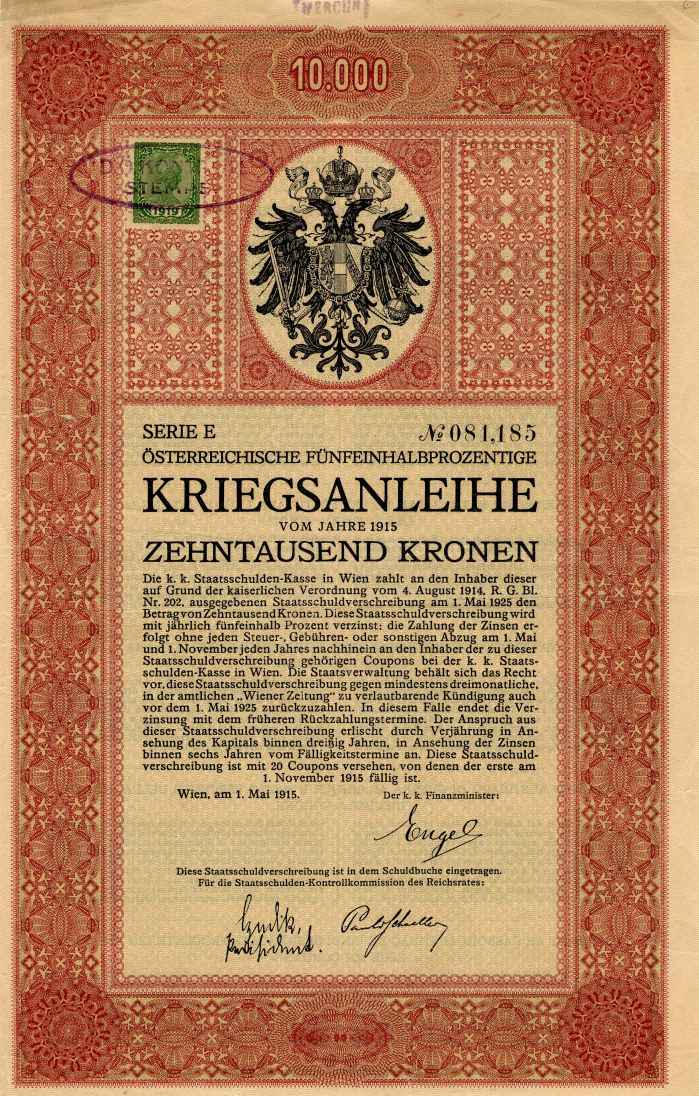Osterreichische Funfeinhalbprozentige Kriegsanleihe - 10,000 Kronen Bond dated 1915
Inv# FB6549 Bond
10,000 Kronen. Vienna, Austria. Scarce!
In 1804, during the Napoleonic Wars, Vienna became the capital of the newly formed Austrian Empire. The city continued to play a major role in European and world politics, including hosting the Congress of Vienna in 1814–15. The city also saw major uprisings against Hapsburg rule in 1848, which were suppressed. After the Austro-Hungarian Compromise of 1867, Vienna remained the capital of what became the Austro-Hungarian Empire. The city functioned as a center of classical music, for which the title of the First Viennese School (Haydn/Mozart/Beethoven) is sometimes applied.
During the latter half of the 19th century, Vienna developed what had previously been the bastions and glacis into the Ringstraße, a new boulevard surrounding the historical town and a major prestige project. Former suburbs were incorporated, and the city of Vienna grew dramatically. In 1918, after World War I, Vienna became capital of the Republic of German-Austria, and then in 1919 of the First Republic of Austria.
From the late-19th century to 1938, the city remained a center of high culture and of modernism. A world capital of music, Vienna played host to composers such as Brahms, Bruckner, Mahler and Richard Strauss. The city's cultural contributions in the first half of the 20th century included, among many, the Vienna Secession movement in art, psychoanalysis, the Second Viennese School (Schoenberg, Berg, Webern), the architecture of Adolf Loos and the philosophy of Ludwig Wittgenstein and the Vienna Circle. In 1913 Adolf Hitler, Leon Trotsky, Josip Broz Tito, Sigmund Freud and Joseph Stalin all lived within a few kilometers of each other in central Vienna, some of them becoming regulars at the same coffeehouses. Austrians came to regard Vienna as a center of socialist politics, sometimes referred to as "Red Vienna" (Das rote Wien). In the Austrian Civil War of 1934 Chancellor Engelbert Dollfuss sent the Austrian Army to shell civilian housing such as the Karl Marx-Hof occupied by the socialist militia.
A bond is a document of title for a loan. Bonds are issued, not only by businesses, but also by national, state or city governments, or other public bodies, or sometimes by individuals. Bonds are a loan to the company or other body. They are normally repayable within a stated period of time. Bonds earn interest at a fixed rate, which must usually be paid by the undertaking regardless of its financial results. A bondholder is a creditor of the undertaking.










Ebay ID: labarre_galleries